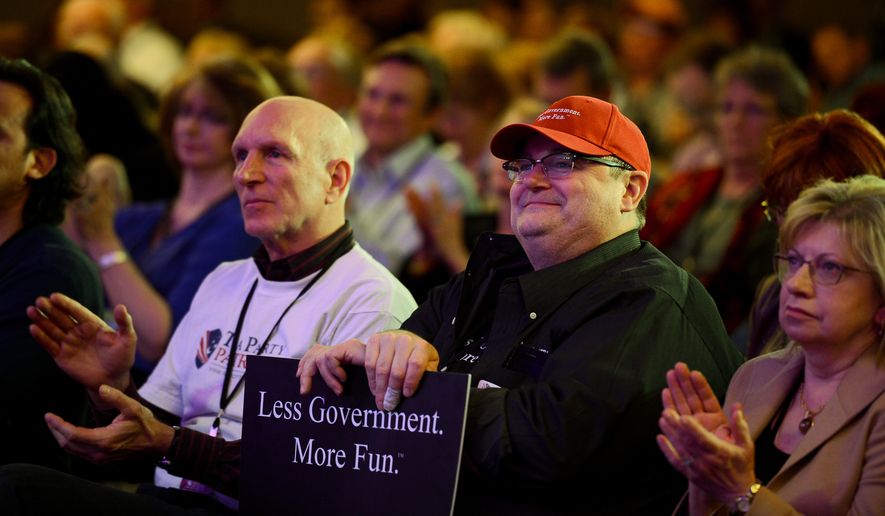The IRS has finally agreed to a process for deciding on the last remaining nonprofit application that was snared in the Obama administration’s tea party targeting, more than four years after the illegal singling-out of conservative groups for special scrutiny was first revealed.
In court filings this week, the IRS acceded to rules governing how the tax agency will decide whether to grant nonprofit status to the Texas Patriots Tea Party, which has been awaiting a decision for years.
The agreement doesn’t mean the group will be approved, but it sets up a process for making a decision.
“This does provide a path forward for TPTP,” said Edward Greim, a lawyer representing the group, as well as hundreds of other tea party organizations that have banded together in a class-action lawsuit against the IRS. “We will be watching the IRS closely to ensure that TPTP does in fact receive fair processing.”
Nearly 500 groups applying for tax-exempt status from 2009 to 2013 were subjected to intrusive scrutiny by the IRS based on perceived political activity. Most of those groups came from the conservative side of the spectrum. Investigators said organizations with words such as “tea party” or “patriots” were automatically flagged.
Once singled out, groups faced intrusive questions about their political beliefs, their affiliations with fellow tea party organizations, how they came up with their names, and their members’ political activity and donation histories.
Of the groups targeted, the TPTP is the last one awaiting processing.
Applications for several other groups were processed late last year. One of them, the Tri-City Tea Party, won approval in April, and the Albuquerque Tea Party won approval this month. Albuquerque activists had been waiting more than seven years.
In the case of the TPTP, the sides had been arguing over the latest set of questions from the IRS — the third iteration — submitted late last year.
Under an agreement submitted to a federal court in Cincinnati this week, the TPTP will submit one final set of answers describing political candidates and educational speakers who have been invited to address the group.
The IRS agreed not to penalize the group for the words “tea party” in its name. The IRS also vowed not to consider the ideology of the group’s members.
The IRS also said it will process the TPTP’s application as of 2013, meaning it cannot deny the group’s application because of the continuing fight over information.
The agreement was reached on the sidelines of the class-action lawsuit.
Judge Michael R. Barrett renewed his ban last week on release of testimony of Lois G. Lerner and Holly Paz, two former IRS employees who were at the center of the targeting controversy.
Each has been deposed in the lawsuit but complained that the release of their testimony would spark another round of threats to their safety.
Judge Barrett said that only attorneys and a small group of plaintiffs who are sworn to secrecy will have access to the transcripts.
A full trial is slated for February.
Meanwhile, two top House Republicans have asked the Justice Department to reopen a criminal investigation into Ms. Lerner.
The Obama administration cleared her of wrongdoing, saying that instead of being the problem, Ms. Lerner took steps to curtail the targeting when she learned of its full extent.
• Stephen Dinan can be reached at sdinan@washingtontimes.com.




Please read our comment policy before commenting.